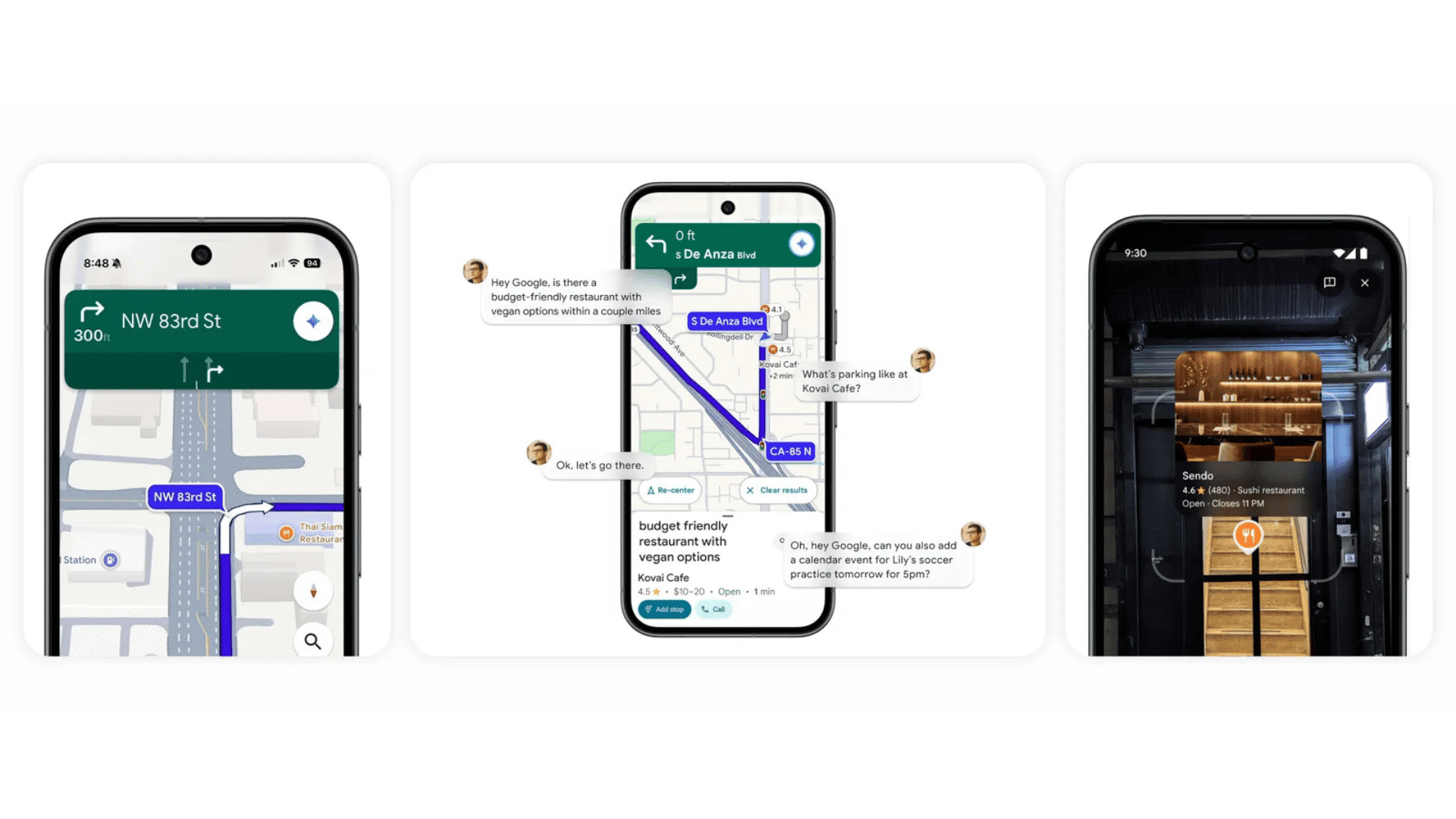Google’s AI assistant will play a role in the company’s GPS assistant. Google announced the introduction of Gemini into Google Maps for hands-free and highly conversational navigation. According to the tech giant, it will be like having an intelligent friend in the passenger seat that can confidently help you get to where you’re going.
The upgrade aims to simplify the multiple steps for drivers and passengers looking for directions with fewer distracting interactions.
At the core of the update is the hands-free, conversational driving experience. It’s built into the Google Maps app on Android and iOS. Google states that users can easily manage multi-step errands entirely by their voice. For example, a driver can plan locations while driving with follow-up questions.
They can ask questions like “Is there a budget-friendly restaurant with vegan options along my route, something within a couple of miles?” Then, a user can ask further questions, like “What’s the parking like there?” When the user is satisfied, they can tell it to take them there.
Gemini also connects to personal apps with the user’s permission to handle additional planning, such as calendar updates. Additionally, the new system can help with road safety, and users can tell it if there is an accident or hazard on the road.
Advertisement
Smarter Driving Experience


Another key feature is the enhancement of spatial awareness, which provides landmark-based navigation. So long are the days of the vague “turn right in 500 feet.” According to Google, the directions will reference easily identifiable points of interest on your route, such as gas stations, restaurants, or notable buildings. This feature is the result of Google Maps’ comprehensive analysis of information about 250 million places cross-referenced with Street View.
Additionally, for U.S. Android users, the app will offer proactive traffic alerts. For example, it will notify users of closures or heavy traffic even if they are not actively using the navigation.
The Gemini integration is rolling out globally on Android and iOS, where the assistant is available, promising to improve how users interact with and rely on Google Maps for all aspects of their travel.



